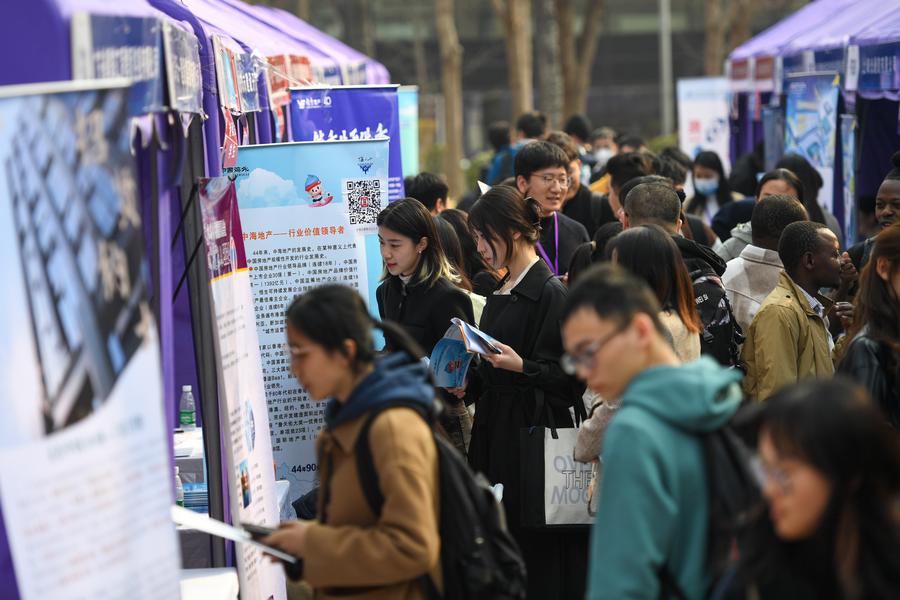
Students attend a job fair at Tsinghua University in Beijing, capital of China, March 15, 2024. [Photo/Xinhua]
Sept. 27, 2024 -- China has stressed high-quality and full employment for the people, as it will channel more resources to optimize talent creation systems, incubate new industries and improve employment services, aiming to ensure fairer and effective access to job opportunities.
The State Council, China's Cabinet, recently unveiled a guideline on developing high-quality employment, which includes 24 specific measures covering education system adjustment, new industries incubation and workers' rights and benefits protection.
Under the guideline, local authorities are required to create more high-quality job opportunities by upgrading traditional industries and fostering new industries such as manufacturing, modern services and modern agriculture to attract more people to work in these sectors.
Developing the platform economy, the green economy and the silver economy is also stressed as these sectors have great potential in terms of generating employment opportunities.
Pang Shi, director of the Chinese Academy of Personnel Science's department of employment and entrepreneurship, said the high-quality employment highlighted in the guideline is in line with the nation's high-quality socioeconomic development and technological advancement.
"Workers in high-quality employment usually have reasonable salary increases following periods of economic growth and their professionalism and working abilities can be improved through improved training and technological progress," she said, adding that workers' relations with employers and their safety can be fully secured under high-quality employment, and they also enjoy more sound protection of their rights.
According to the guideline, the government will optimize both the higher education and vocational education systems.
The policy document required colleges and universities to expand student enrollment for science majors and disciplines related to agriculture and healthcare, and colleges and universities are encouraged to improve their curriculum based on the real needs of employees and industries.
Also, graduates' hiring prospects will be taken as a key standard in evaluating a major's teaching quality and future enrollment plans, and disciplines with poor job outcomes will be liable for review.
Vocational education and flexible employment are highlighted as key areas for generating job opportunities. More skills training centers will be established, and companies are encouraged to open vocational schools to meet market demand, the guideline said.
It also called for removing unreasonable restrictions on labor mobility and eliminating job discrimination based on social status, gender or age. It mandated improved salary mechanisms and measures to crack down on illegal employment practices such as wage arrears and unfair layoffs.
An employment monitoring system and an emergency response mechanism for large-scale unemployment will be established.
"High-quality employment offers individuals sufficient job opportunities, reasonable payment, good working environment and promising career prospects, as well as secures social benefits and working rights. It promotes work-life balance and emphasizes the quality of jobs, as job quality ensures workers' benefits and the nation's healthier development," said Guo Sheng, president and CEO of the recruitment portal Zhaopin.


